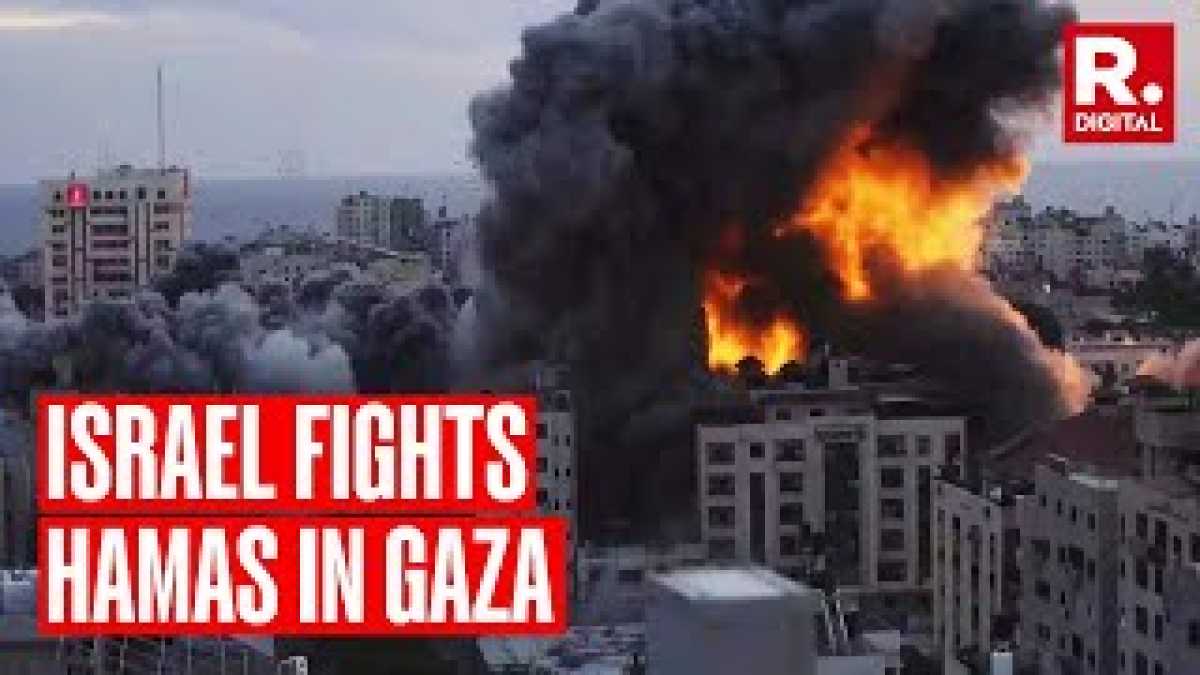World
Sensational Report on Houthis’ Involvement in Israel-Hamas Conflict

Yemen’s Houthi rebels have made their presence felt in the ongoing Israel-Hamas conflict by firing drones and missiles at Israel from their base in Sanaa, over 1,000 miles away. The move highlights the regional risks of the escalating conflict and the Houthis’ alignment with the Palestinians. As part of the “Axis of Resistance” supported by Iran, the Houthis have joined forces with Hamas, opening up a new front in their eight-year war with the Saudi-led coalition in the Gulf. The recent attacks by the Houthis on Israel signify the widening scope of the conflict, causing concerns for neighboring states, including Saudi Arabia, the world’s largest oil exporter, as they fear potential spillover effects.
Houthi military spokesperson, Yahya Saree, confirmed the group’s involvement in the conflict through a televised statement. He claimed that the Houthis had launched a significant number of ballistic missiles and drones towards Israel, adding that more attacks would follow to support the Palestinian cause. This admission confirmed their responsibility for various incidents, including an October 28 drone attack in Egypt that resulted in explosions and was attributed to the Houthis by Israel. The group was also behind an October 19 attack in which the U.S. navy intercepted three cruise missiles.
Israeli National Security Adviser, Tzachi Hanegbi, described the Houthi attacks as intolerable but did not provide details on Israel’s potential response. The Houthis, known for their slogan “Death to America, death to Israel, curse the Jews and victory to Islam,” form a significant part of the “Axis of Resistance,” which opposes Israel and the United States. The conflict has escalated throughout the region since Hamas launched its attacks on Israel in early October. Iran-backed militias in Iraq have targeted U.S. forces, and Hezbollah in Lebanon has exchanged fire with Israeli forces along the Lebanese-Israeli border.
The Houthis have demonstrated their missile and drone capabilities during the Yemen war, frequently launching attacks on Saudi Arabia and the United Arab Emirates. The Saudi-led coalition accuses Iran of arming, training, and financing the Houthi rebels. While the group denies being an Iranian proxy, it asserts that it develops its own weapons. The United States, Israel’s main ally, has deployed aircraft carriers in the region as a deterrent to prevent further escalation of the Gaza conflict. Iran has also expressed its desire to prevent the war from spreading.
However, Iranian Foreign Minister, Hossein Amirabdollahian, hinted that Tehran’s allies could take further action. He stated that “Resistance groups will not remain silent in the face of the Zionist regime’s crimes and America’s full support for the Zionist regime.” He added that if the situation gets out of control, no party would be safe from the consequences. Amid these developments, Houthi spokesperson Saree blamed Israel for destabilizing the Middle East and expanded the circle of conflict in the region through its continued aggression. The Houthis pledged to continue their attacks until the Israeli aggression ceases.
While Israeli air defenses have successfully intercepted many Houthi missiles and drones during the recent hostilities, some experts believe that the attacks serve more as a message than an immediate military threat. However, if an all-out engagement were to occur, with multiple rocket launches overwhelming the air defenses, it could pose a significant risk to Israel.
Yemen has experienced relative calm over the past year due to a U.N.-led peace initiative. Saudi Arabia has been engaging in talks with the Houthis to find a way to end the war, as the kingdom focuses on its economic priorities. However, the Houthis’ attacks on Israel have heightened the risk of conflict for Saudi Arabia. The most direct flight path for any drone or missile launched from Yemen traverses western Saudi Arabia near the Red Sea before flying over Jordan and reaching Israel.
No official response from the Saudi government to the Houthi attacks has been reported at this time. Analyst Aziz Alghashian suggested that Saudi Arabia would be concerned about the conflict potentially spilling across its borders. The recent developments come after Saudi Arabia and Iran, the leading Sunni Arab and Shia powers in the region, agreed to restore diplomatic ties earlier this year, easing tensions that have fueled conflicts across the Middle East. In 2019, the Houthis claimed responsibility for an attack that temporarily cut more than half of Saudi oil output. The United States attributed the attack to Iran, which Tehran denied.












